How do love, futures and philanthropy intersect, and why is this intersection so critical in tackling complex challenges in a polycrisis? Hannah Pathak, Forum’s International Managing Director, explores more in this blog, the second of a three-part series sharing lessons we have learned in using futures and foresight with civil society organisations and philanthropy over the years.
Over the last year or so, when I’ve been asked to give talks or run sessions on Futures, I’ve begun to talk about love.
I was mildly terrified the first time I did it—at a very corporate event no less. Expecting an atmosphere of professional awkwardness to wash over the audience, I spoke about the need for us to connect to feelings of love in our work. The fundamental “why” of people trying – in whatever sector they are in and whatever their sphere of influence – to tackle our interconnecting crises of planetary collapse and social injustice and inequality, is rooted in a feeling that feels strong enough to call it love. Love, for our beautiful planet and for all that inhabits it, human or otherwise.
Rather than be awash with awkwardness, there was instead a ripple of sound, as people reacted with nods and murmurs. It resonated, and it has every time I have talked about love since, getting a little bolder in doing so each time.
Love, futures and philanthropy
Without this deep love, there is no use engaging in Futures – this deep love underlies why we engage in the work that we do: scanning the horizon for signals and possible outcomes for the world today, and outlining the steps needed to get towards the best possible scenario.
Working from the heart is also something Forum explored in our Future of Sustainability 2023 report, Courage to Transform. In it, we explore four plausible future trajectories emerging now, and argue that only one of these trajectories, Courage to Transform, has the transformative potential that is commensurate with the level of interconnecting challenges we face and which require our urgent, collective action. The root of the word “courage” is the Latin “cor”, meaning “heart”. To be brave requires connecting to, and speaking and acting from the heart.
A parallel sphere to futures is that of philanthropy. Just as how love is core to Futures, love is central to philanthropy. Though we have come to understand it as charitable giving intended to generate positive outcomes, on preparing this blog, I learned that the word “philanthropy” actually means “love for mankind”. It is this desire to create a better world – a just and regenerative future – that connects philanthropy to futures.
But beyond love, how do futures and philanthropy go hand-in-hand?
A brief history of philanthropy
To think about how Futures applies to philanthropy, it is – as is often the case with Futures – valuable to think about the past. Our approach to philanthropy has evolved over time, and in response to contemporary challenges and beliefs. The history of philanthropy encompasses principles of charitable giving associated with religion, such as the Islamic faith’s pillar, Zakat; in the aftermath of a disaster, faith groups are often key to provide both comfort and assistance. It also encompasses philanthropic acts in times of major social change and upheaval. Many of the large-scale philanthropic foundations that exist today have their roots in the industrial revolution or the inter-world war years, where wealthy industrialists sought to channel some of their affluence into tackling social challenges, such as education, housing and health. These actions of individuals and their families also shaped public sector narratives on social priorities, contributing to shifts in public spending in the post war years. The actions of these notable philanthropists were far-sighted in many ways – seeing that healthier humans, living in better conditions, were able to live happier and more flourishing lives, leading to more stable and thriving societies.
However, the history of philanthropic action has also been beset by problematic beliefs about race, gender, religion and class, which shaped who benefitted, and how, and with what conditions. Narratives around philanthropy also often overlook the reality that often, most philanthropic activities are less visible than the work of large philanthropic institutions. Instead, it is local, it is community-based, it is grassroots. For instance, it is a community pulling together after a disaster, sharing resources and being the first responders. As the Center for Disaster Philanthropy writes, “It is commonly acknowledged that all disasters start and end locally.”
The role of futures and philanthropy in a polycrisis
Right now, in the mid 2020s, we are living in what, for the last couple of years, has been termed a “polycrisis”: a series of connected, overlapping, cascading crises from the climate crisis to multiple conflicts, the COVID pandemic, supply chain disruption, escalating costs of living, to devastating nature loss. All of these exacerbate any pre-existing vulnerabilities – those most vulnerable have the least adaptive capacity to cope with shocks to their survival.
In a crisis context, locally-led philanthropy is often more timely and more context-appropriate. Yet often funding streams and decisions over how funding is deployed is disproportionately held by international organisations and by national governments. What, then, is the role of philanthropy in a polycrisis and to work with a futures mindset? And specifically, for philanthropic foundations, how to navigate their role relative to other, historically overlooked or underplayed forms of philanthropy?
Thinking back to love, Futures can be an incredibly valuable tool for helping to channel our love of the world into philanthropic work, to harness a desire to serve and to be caretakers of our world and societies – for now and for future generations. Here, I explore here the Futures principles and approaches that we have found add value in our work with philanthropies.
- Make it anticipatory: Exploring the multiple, plausible ways that society may change over different time horizons is key to a Futures-oriented mindset. It is about exploring trajectories, or how a particular trend may evolve in interaction with other trends. Exploring and anticipating plural possible outcomes results in more resilient thinking, a better understanding of connections and relationships, and more robust preparedness for outlier or seemingly unprecedented events. For philanthropy, this means developing a deeper understanding of where philanthropic need may arise in the future, and the drivers of need and connections between these.
- Make it participatory: If the shadow side of philanthropy is things done to beneficiaries, even with the best of intent, then a key Futures shift is to ensure that actions are taken with all relevant parties, at every stage, from identifying issues to solutioning to implementing to evaluating. This means philanthropic foundations working with grassroots organisations and communities in lockstep.
- Make it systemic: As the writer and activist Audre Lorde noted in 1982, “There is no such thing as a single issue struggle because we do not live single issue lives.” Most philanthropic organisations have focus areas, and whilst there has been a shift towards “polycrisis philanthropy”, the desire to be able to design for, and decipher, impact, means that having defined focus areas is likely to continue. There is no doubt that focusing on, say, literacy for girls, is more likely to advance progress in that area than a more generalised focus on education. However, understanding both the multiple, complex systemic drivers of an issue is important, as well as using Futures approaches to explore the multiple, complex systemic impacts of philanthropic interventions. Explore the potential first, second, third and wider order effects of your philanthropic action.
- Make it both complementary and shaping: Philanthropy is often seen as “society’s risk capital”, fulfilling a financial niche that other financial actors do not. But philanthropy cannot be the backstop for failed government action or mop up the social and environmental consequences of extractive market forces. It must complement the directions of travel of other parts of society that lead to more positive social and ecological outcomes, whilst countering and reshaping those that do not. This is where Futures has further value, as a means of shaping ideas about desirable, plausible futures to orient towards – sometimes called protopias, to distinguish between the binaries of utopias and dystopias often used as imaginaries in exploratory Futures.
- Last, but most critically, make it courageous: Drawing on the root of the word here as in connecting to the heart of what matters – to your beneficiaries and to the driving purpose of your organisation. Thinking and acting in a courageous, connected way makes a participatory and systemic approach more authentic, and – as the Courage to Transform trajectory illustrates – creates the impetus for the great transformative changes required to tackle the global challenges that face us.
Continue reading
- Up next: Philanthropy is adopting a new tool for impact: Futures thinking by Ariel Muller
- Previously in the series: Long term imagination for impact: Creative futuring for civil society and philanthropy by Alisha Bhagat
This blog is the second part of a blog series on the lessons we have learned in using futures and foresight with civil society organisations and philanthropy over the past couple of years, as well as case studies, process, and impact.
It was originally published on Forum for the Future on 16th April 2024.



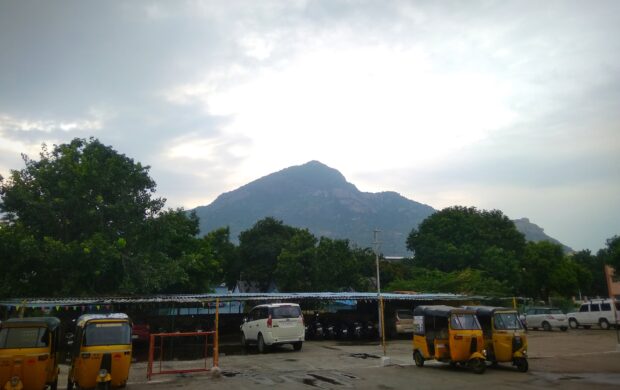




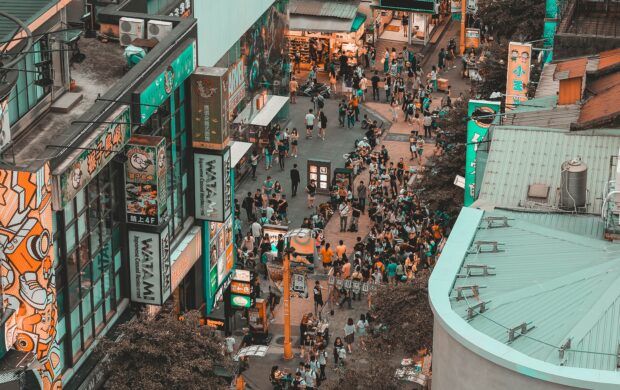


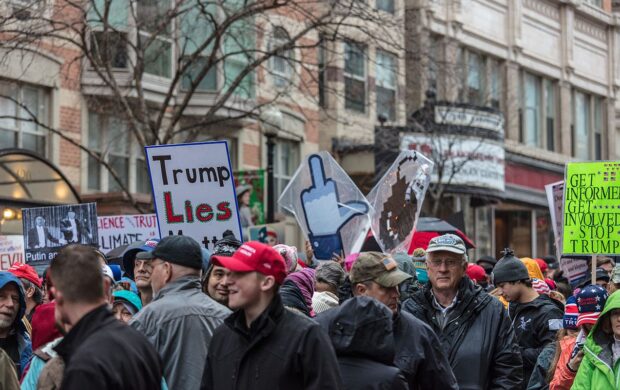
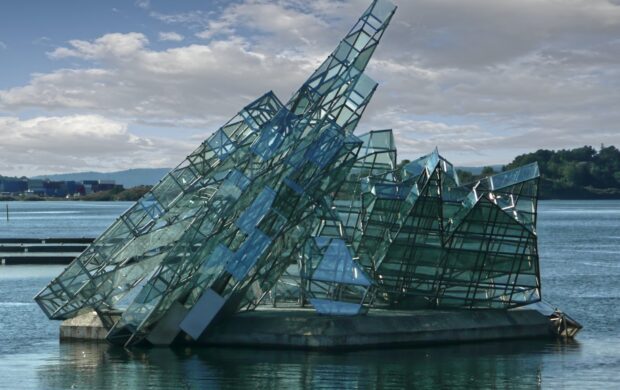

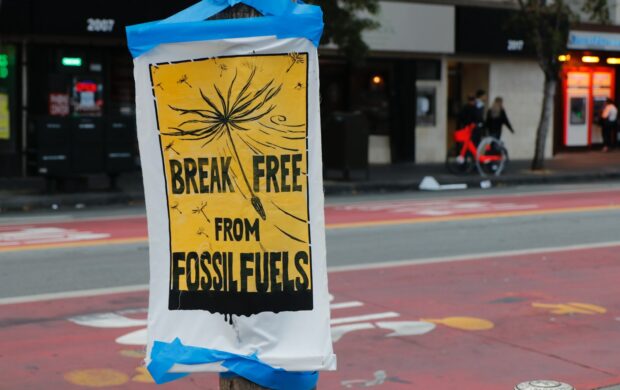


Join discussion